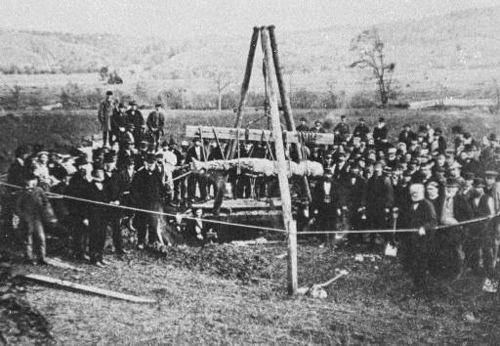
Workers were digging a well in New York in 1869 when they made a sensational discovery: a 10-foot man made of stone.
Was it an ancient statue? A huge petrified human? The truth turned out to be more mundane: The “Cardiff Giant” had been carved out of gypsum and deliberately buried by a New York tobacconist named George Hull. He turned a good profit: His $2,600 investment sold for $37,500 when it was “discovered.”
The continuing hysteria drove profits higher, and P.T. Barnum offered $60,000 to lease it for three months. Rebuffed, he built his own plaster replica and decried the original as a fake, leading exhibitor David Hannum to grumble, “There’s a sucker born every minute” — a remark later misattributed to Barnum himself.
Eventually the whole thing blew over; by 1870 both giants had been revealed as fake. But the old gypsum carving still makes a good show — it’s on display today in a Cooperstown, N.Y., museum.



